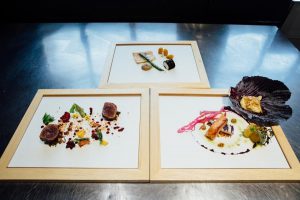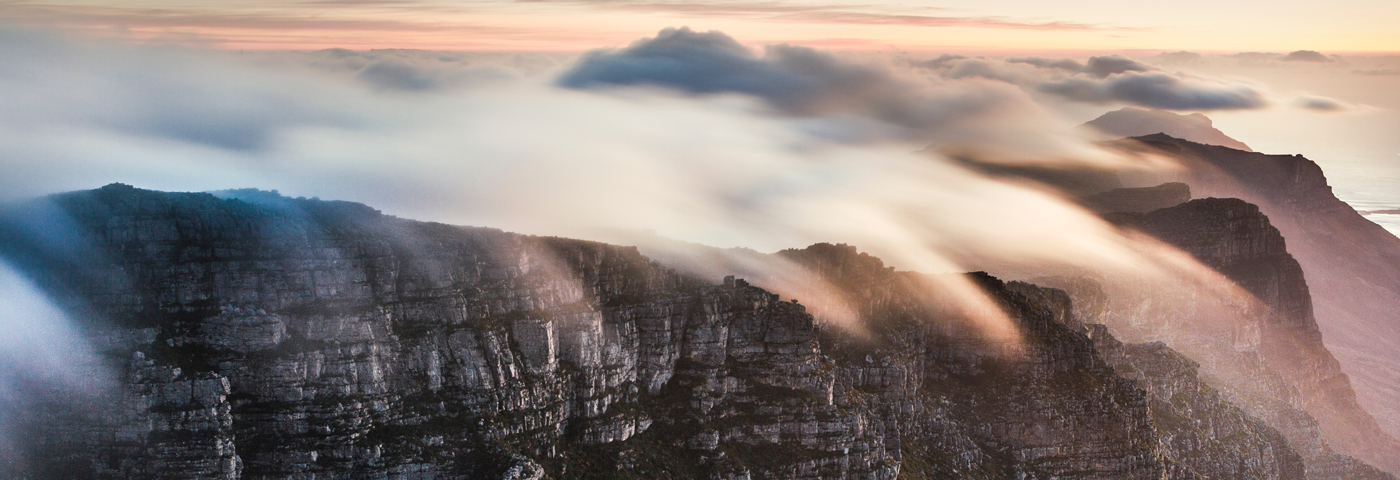Article originally published by The Telegraph and edited for View from ILTM.
As we mark World Water Day 2018 by focusing our attention on the importance of water, Pippa de Bruyn examines the dire situation in Cape Town, finding innovation and commitments from the hospitality and travel industry.

“‘Isn’t that a bit extreme?’ That’s what one diner said when he was asked if he wouldn’t mind keeping his cutlery for the next course. But everyone else has been amazing.”
Luke Dale Roberts, South Africa’s most celebrated chef, is talking about the recently introduced water-saving initiatives in his restaurants: harvesting grey water from air-conditioning units, boiling ice-bucket water to mop floors, disconnecting scullery hoses, installing new tap diffusers, using disposable napkins, discarding table cloths, and asking guests to hold onto their cutlery.
But perhaps the real innovation is serving several of his Test Kitchen courses on disposable cards that fit into an empty picture frame. In The Drought Kitchen – the two-month pop-up restaurant within The Test Kitchen – the entire six-course menu will be served this way, eliminating the need to wash 5,000 plates a week. It’s not only a water-economical concept but an accurate visual play; rather like Grant Achatz, who famously uses the entire table as his canvas, Luke is a master in creating edible art.
What is causing this innovation?
When Day Zero – denoting the date the city’s taps could be switched off – changed from being a vague possibility to a scheduled April 15, the result was shock and panic. Within days tanks to harvest rainwater had sold out, every supermarket trolley was loaded with bottled water and queues outside natural springs snaked around the block. Residents and business owners were urged to “get creative”.
Since then the city’s inhabitants, authorities and surrounding farming community have pulled together, and daily water consumption has dropped to 511 million litres (from a high of 1.2 billion). While the target is 450, this is a commendable feat, pushing Day Zero back to May 11, then June 4, then July 9, when winter rains should be well underway.
On March 7, the DA (who control the province for now) made the somewhat fatuous announcement that “Day Zero has been defeated for 2018”, much to the outrage of water-wise Capetonians, many of whom feel that Day Zero fulminated ill-advised hysteria.
Does this mean the water crisis is over?
No. After three years of below-average rainfall, there is no guarantee that the 2018 winter rains will fill the Western Cape’s dams, the levels of which (at March 13, when the drought was declared a national disaster) are at 23 per cent. Even if they do, the city will retain water restrictions. Currently each resident is restricted to a maximum of 50 litres of water a day, regardless of where it is drawn. Likewise, the City of Cape Town exhorts visitors to “save like a local”. The government is currently accessing additional funding and several water augmentation projects are already underway, but these will take time. For now, reducing reliance on tap water is the new normal.
What about the rest of South Africa?
Only the city of Cape Town and its peninsula are badly affected. At popular destinations like Hermanus, a mere 90 minutes from the airport, residents are still allowed to water their gardens (though only at certain hours, twice weekly). Further east, towns like Prince Albert and Wilderness seem unaware of the minor water restrictions in place. That said, visitors and operators are asked to be mindful that water is a precious resource throughout Southern Africa.
What are hotels doing about it?
Most Cape Town hotels have taken exemplary measures to reduce their water consumption: removing bath plugs; encouraging guests to take quick showers; replacing napkins with serviettes; switching off fountains and irrigation systems; investigating kitchen systems. It appears that the V&A Waterfront’s new desalination plant, near which there are several hotels, will be the first up and running, and the city centre has been designated a “continuous water supply” area. Cape Town Tourism encourages operators and visitors to keep asking what measures are in place to save water and to share information and tips.
What can you do to help?
Don’t bath. Restrict your shower to 90 seconds. Use towels more than once. Pack in extra clothes so that you can take your laundry home with you. Flush the toilet only when necessary (a single flush uses an exorbitant 6 to 14 litres). Drink bottled water from the bottle. Don’t let taps run when brushing teeth or washing your face. And yes, offer to keep your cutlery between courses.
Pippa de Bruyn is an award-winning journalist and Telegraph Travel‘s South Africa destination expert. This April, Pippa will be in Cape Town for ILTM Africa as one of our exemplary media attendees. To learn how you can work with the media at ILTM events, check out these 5 top tips.


